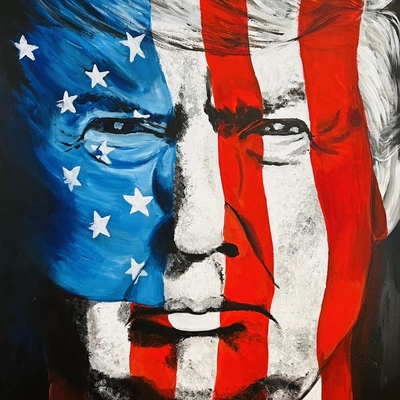Stay informed on the latest Truth Social posts from Donald Trump (@realDonaldTrump) without the doomscrolling. Consider it a public service for your mental health. (Why?)
- The United States has a significant and persistent trade deficit with Korea due to Korea's tariffs and non-tariff policies and trade barriers.
- Starting August 1, 2025, the U.S. will impose a 25% tariff on all Korean products imported into the United States, separate from other sectoral tariffs.
- Goods transshipped to evade the 25% tariff will be subject to a higher tariff.
- Korean companies that build or manufacture products within the United States will not be subject to these tariffs.
- If Korea raises its tariffs, the U.S. will add that increase to its existing 25% tariff.
- The trade deficit is identified as a major threat to the U.S. economy and national security.
The imposition of a 25% tariff on all Korean products entering the U.S. and the threat of escalated tariffs upon retaliation represent a significant trade policy change. This could lead to increased costs for U.S. companies importing from Korea, affecting profit margins, and potentially raising consumer prices. It also introduces considerable uncertainty for global supply chains and could trigger a broader trade dispute, impacting corporate earnings and overall market sentiment, particularly for sectors with strong trade ties to Korea.
The letter outlines unilateral trade measures, specifically tariffs, against Korea, citing economic and national security concerns due to trade deficits. While primarily an economic policy, such actions can strain diplomatic relations and potentially lead to retaliatory trade measures, increasing bilateral tension. However, the communication does not contain direct military threats or ultimatums that suggest an immediate escalation to international conflict.
- Commodities: Gold (XAU) is likely to rise due to increased global trade uncertainty and demand for safe-haven assets. Oil (WTI) may see a slight negative impact if broader trade tensions lead to a slowdown in global economic activity. Copper could experience downward pressure as industrial sentiment weakens.
- Currencies (Forex): The US Dollar Index (DXY) may initially strengthen as the policy is perceived as U.S.-favorable, or weaken if trade war fears escalate. The Korean Won (KRW) is expected to weaken significantly against the USD due to the direct impact on its exports. Other major pairs like EURUSD and USDJPY could experience volatility reflecting shifting risk sentiment.
- Global Equities: The S&P 500 could face downward pressure due to potential increases in input costs for U.S. businesses and the risk of retaliatory tariffs. South Korean equities (KOSPI) would likely experience significant negative impact. European (STOXX 600), Japanese (Nikkei 225), and Hong Kong (Hang Seng) markets could also be negatively affected by broader global trade tensions and supply chain disruptions.
- Fixed Income (Bonds): US 10Y and 2Y yields may initially fall as investors seek safe-haven assets amidst trade uncertainty. However, persistent tariffs could contribute to inflationary pressures in the long term, potentially leading to rising yields. Credit spreads are likely to widen, particularly for companies exposed to Korean trade or those vulnerable to broader trade disruptions.
- Volatility / Derivatives: The VIX is highly likely to spike due to heightened market uncertainty regarding trade policy implementation and potential international retaliation. Options positioning would reflect increased demand for hedging against downside risk.
- Crypto / Digital Assets: Bitcoin (BTC) could behave as a risk-off asset, potentially seeing inflows if traditional markets experience significant downturns due to trade war fears, or it could fall if liquidity tightens and tech correlations dominate.
- Cross-Asset Correlations and Systemic Risk: There is an increased risk of breakdowns in normal asset correlations, particularly if trade tensions trigger a broad risk-off environment where both equities and bonds sell off. Signs of liquidity stress, such as widening credit spreads, would be critical to monitor.
- Retail Sentiment / Market Psychology: The announcement is likely to trigger increased caution and anxiety among retail investors due to the potential for a trade war and its negative implications for economic growth. This could lead to a shift away from riskier assets or towards domestic-focused investments.

